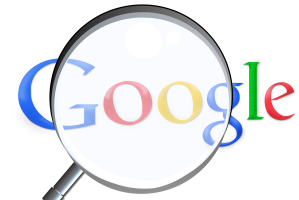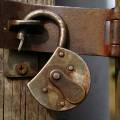Reassurance Seeking in OCD

Although contamination-related OCD and washing rituals often go hand-in-hand, many rituals in this domain do not actually involve cleaning or disinfecting. Reassurance seeking is a subtle ritual that involves asking questions or seeking out information regarding the prevention, transmission, incubation, and symptoms of various diseases.
Although contamination OCD and washing rituals often go hand-in-hand, many rituals in this domain do not actually involve cleaning or disinfecting. These more subtle rituals are often based around reassurance seeking behaviors that become ingrained in everyday habit. In the context of exposure and response prevention (ERP), reassurance seeking OCD rituals are just as important to address as washing rituals. If you resist washing rituals but continue to engage in reassurance seeking rituals, your recovery will eventually stall (or perhaps never get started at all).
Do you believe that knowledge is power?
Do you aspire to optimum health?
Do you believe that an ounce of prevention is worth a pound of cure?
If so, you may be vulnerable to reassurance seeking rituals.
Information-Seeking vs. Reassurance Seeking
Reassurance seeking rituals involve mentally preparing for potential threats. These compulsions are often based around behaviors such as asking questions or looking up information about disease prevention, transmission, incubation, or symptoms.
Because reassurance seeking rituals are subtle, they might easily slip past you. You might be thinking, “These behaviors are not rituals. They’re simply responsible behaviors.”
Fortunately, not all information-seeking is compulsive. When I worked at the St. Louis Behavioral Medicine Institute (SLBMI), Alec Pollard discussed the differences between information-seeking and reassurance seeking. Because information-seeking behaviors are used to become informed, they involve asking questions one time (only) to obtain needed information. Information-seekers understand the limits of knowledge and ask answerable questions, accept uncertain answers (when appropriate), and use information obtained to draw conclusions. Decisions tend to be quick and result in some type of behavior change or action.
In contrast, reassurance seeking behaviors are attempts to reduce OCD doubt and uncertainty, as well as anxiety. As such, reassurance seekers often ask the same question multiple times in slightly different ways. Many sources are consulted, and often the same source is consulted multiple times to increase understanding and reduce potential miscommunication. Reassurance seekers often worry that they haven’t understood the answer properly, and they frequently ask for answer repetition or clarification.
Reassurance seekers often ask unanswerable questions or questions that their conversation partners cannot (or are not qualified to) answer (e.g., “Do you think I’m going to get sick?” or in the case of scrupulosity, “Do you think I’m going to hell?”). They often know the answer they want to get in advance of asking the question and have a difficult time tolerating uncertain or ambiguous answers. Upon obtaining an answer, conclusions are typically deferred in hopes of understanding the issue more thoroughly later. Alternatively, action may be stalled in hopes that better or more accurate information might emerge in the future. As such, the decision making process is often time-consuming, stressful, frustrating, and non-productive. Moreover, the decision making process may be stopped and started multiple times due to OCD-related indecision.
Information seeking and reassurance seeking are not wholly separable, and it’s more accurate to think about them existing on a continuum rather than as separate processes. For exposure and response prevention (ERP) to be most effective, reassurance seeking rituals must be discontinued entirely. Developing appropriate response prevention guidelines that describe acceptable information search behaviors is necessary. These guidelines often impose time limits on information search, restrict information sources, and constrain the number of times information can be reviewed.
Reassurance Seeking Rituals in OCD
One of the most common reassurance seeking rituals involves compulsively searching for health-related information online. Although sources of information may vary in their level of scientific credibility (e.g., the CDC website vs. an online forum), credible information sources are just as vulnerable to rituals as those lacking in credibility.
Other individuals compulsively search for information about their medications. These individuals worry that the only “safe” way to proceed is to find the best medication and to be aware of every possible medication side effect. Hypervigilance for potential medication side effects often results in body scanning rituals that increase one’s sensitivity to normal bodily fluctuations. This then becomes a self-fulfilling prophecy. Because these individuals internally check their bodies for potential medication side effects, they become primed to notice “dangerous” or unwanted sensations. This decreases medication tolerability and leads many individuals to prematurely discontinue helpful medications.
OCD: Common Reassurance Seeking Rituals
- Using Google, Bing, or other search engines compulsively to obtain disease-related information.
- Compulsively searching online for possible medication side effects and counter-indications.
- Reviewing the same information multiple times and/or from multiple sources.
- Re-reading books, articles, or websites that focus on disease or health-related topics.
- Body scanning rituals (internally checking for aches, pains, nausea, fatigue, or other unwanted symptoms).
- Closely monitoring body temperature and/or avoiding extremes in temperature.
- Taking excessive vitamins and/or supplements in efforts to prevent illness.
- Compulsive mirror checks (checking skin color/temperature, checking for growths/moles, or checking to see if one looks “healthy” and “rested”).
- Compulsively monitoring vitals (e.g., blood pressure, temperature, heartrate).
- Asking or checking with others about their grooming habits and/or hygiene (e.g., how often they shower or how they bathe, etc.).
- Engaging in excessive exercise or fitness routines in order to prevent disease.
- Asking reassurance seeking questions that begin with… “Do you think it’s okay if I…?”
- Asking reassurance seeking questions that begin with… “Is it normal to…?”
- Adopting non-applicable healthcare guidelines (e.g., following hand-washing guidelines developed for surgeons).
- Over-cooking food or avoiding certain types of foods because they might be dangerous.
- Adopting restrictive diets based around eating only healthy foods (i.e, “orthorexia nervosa”).
- Obtaining excessive inoculations against disease (or alternatively, forgoing all vaccinations).
- Scheduling excessive doctor’s visits, procedures, or consultations (or alternatively, avoiding all doctor’s appointments).
- Compulsively searching for the perfect provider before beginning treatment in order to avoid making a mistake, benefiting sub-optimally from treatment, or wasting time/money.
- Making excessive phone calls to family members when confronted with potentially “dangerous” situations.
- Tracking, monitoring, and inspecting bowel movements and other bodily secretions.
- Asking other people to repeat themselves or write things down in order to prevent miscommunication.
Of course, most often individuals with health-related OCD engage in reassurance seeking rituals in combination with washing and cleaning compulsions. It is also very common to engage in mental rituals, such as trying to control your thoughts.
As I discussed in a previous post, the true purpose of rituals is to escape from an unwanted feeling. This escape may be superficially based around the idea of washing off germs or viruses, but it’s actually a more generalized process. Relief comes not so much from actually removing germs, but more from the perception that you successfully averted an unwanted outcome. Because many individuals with OCD experience a heightened sense of responsibility and a greater fear of potential regret or possible mistakes, they feel compelled to take excessive precautions in situations they perceive as risky.
OCD demands that you seek more certainty and safety. It tells you that you must do everything within your power to live responsibly and avoid risks. It whispers that you can never know enough, prepare enough, or have enough information. OCD also says that acting on insufficient information is dangerous and irresponsible. It says that you might make a mistake that will have permanent consequences. You might get sick and die, or you might cause someone else to get sick. OCD cautions you to never do things that you might regret someday.
The truth is that we can never have 100% certainty about anything.
No matter how many times you wash or how thoroughly you clean, you can never be 100% sure that you’re “safe”. Moreover, the more you listen to OCD and let it establish the parameters of your behavior, the more your symptoms will worsen.
The sooner you recognize that your rituals serve emotional rather than hygienic functions, the sooner your recovery begins.
Questions? Comments? How do you resist your reassurance seeking rituals? Share below…
Want Updates about New Content?
Follow Me!
Follow @drstevenseay












Thank you so much for all of your informative posts! I recently wrote about reassurance and OCD on my blog:
http://ocdtalk.wordpress.com/2012/01/03/ocd-and-reassurance/
If I had seen your post first I surely would have quoted you, especially the paragraph where you talk about the true purpose of rituals. Thank you for all of your insight and expertise.
Thanks, Janet. I didn’t realize you were a fellow blogger. Thanks for sharing with me! I really enjoyed visiting your site — keep up the great posts!
Thank you Dr. Seay for writing a truly brilliant blog. There is still so much misinformation surrounding the proper treatment of OCD. I particularly appreciate the fact that you promote treatment that is backed by scientific research. The OCD community is well served by doctors such as yourself.
Thank you! I truly enjoyed visiting your blog. Shortly before the holidays, I almost tweeted about how a great exposure might involve sending out contaminated Christmas cards. However, I thought that out of context (on Twitter), it might not make sense. Then today I see your post about doing just such a thing. Kudos to you!
Dr Seay,
I had to laugh at the first ritual on the list as I found your site as I was searching the internet trying to find information about OCD and Pure O OCD, with the intent of confirming my suspicions that this is what I indeed am dealing with!
I WILL tell you that your site has been the most helpful and most informative that I have found. I saw myself in many of your posts. I will plan to see my psychiatrist soon, but for now just reading your posts has been helpful in understanding what has been going on in my head.
Thank you for sharing so freely!
So ironic! Thanks for reading. I’m so glad that you’ve found the site helpful. Pure-O can certainly be hard to detect until you develop an appreciation of how diverse OCD symptoms can be. All the Best!
Well I too seem to be in the same boat as Bernice. Reading the articles on your site everything suddenly clicked as to what has been happening to me over and over again, then reading about the first ritual listed in regards to Pure O OCD and realizing that is what you are doing, well, that was one heck of a reality. As Bernice said earlier, this site is definitely one of the best sources of information out there and a huge thank you for getting this information out there!
Thanks for reading, Kevin! Glad you’ve found the site to be helpful.
I am the victim of assurance seeking. I expended much time in assurance seeking and still I am suffering a lot. This will help me a lot and I hope i will stop my rituals as soon as possible to live better life. Thank you for your expert knowledge.
Thanks for reading! Glad the post was helpful!
wow amazing..i feel like you just walked around behind me and took down notes of everything that I do (used to do).
The hardest part is not reassuring and leaving yourself uncertain after a while it feels so much better to just..not know.
One of the ways I knew that I was being destructive was when I could list every possible symptom for every cancer possible and I only noticed this when other friends would ask me questions about themselves…i realized, why do i know all of this? it’s not good for me. I stopped using google and webmd since then.
I read number of your articles. These are unique as explanation you give is wide ranged. ERP method explained by you is in such a detailed steps along with mental compulsions and obsessions faced by OCD pure O can help the individual to observe when he or she is ruminating. I have two questions to ask you 1. When you say online reading is also part of mental compulsion then what is the use of writing all these details when sufferer starts ruminating only to understand about his disorder? 2. Is there any person without mental compulsions or completely free from it even how much healthy he is and considered without OCD?
1. Information-seeking is different than reassurance-seeking. In order to address your OCD, you need to understand what types of behaviors make it better vs. which ones make it worse. Then you need to take active steps to implement these changes in your life.
2. Mental rituals vary widely–some individuals engage in them very frequently, whereas others engage in them less often. I think that most people do exhibit mental compulsions, at least to some extent. OCD itself is also a continuum.
How do I know whether something is OCD? For instance, I have this fear that if I don’t tell my wife something, I will be unable to focus because i will have too much pressure and that I won’t be able to do my work. The fear is something that may be possible and something that would bother most people if true. I’m not so concerned with whether it is true as whether I need to tell my wife about the possibility of it being true. I keep trying to think what others would do and I keep feeling they would be bothered so much that they would need to tell someone. Please someone explain why I can just deal with this thought myself, which may not even be true in the end but in trying to think of worse case which is technically possible. For example I cannot disprove. Are there some things that we just need to tell other people?
Please any insight would be helpful.
Hi,
I’ve had OCD (fear of blood borne diseases including hiv, hepatitis ..etc) for many years but for most of that time I’ve been able to manage it so it wouldn’t interfere with my “normal” life – that was thanks to an excellent therapist who did great CBT and mindfulness work with me.
However, I had an incident the other day at the barber shop whereby I got nicked by his clippers (and saw a small amount of blood on my face) and apparently there is a small risk of getting hep c that way. I hit the roof needless to say !. I know I have OCD and I know that it urges me to seek reassurance etc., and I’m certainly not seeking reassurance here. However, what I have difficulty dealing with is the uncertainty of the assurances I got from “professionals” (eg “small but unlikely risk” .. etc). I mean I cannot distinguish whether:
1- It’s entirely OCD that’s driving my behaviour with this matter. or
2- It’s legitimate for me to worry as there is some risk (albeit small). or
3- It’s a mixture of the two.
I’m seriously confused and what confuses me even more is when I asked the helpline people “Would you worry about this case if you were in my place ?” they would give an evasive answer and refuse to say a simple “yes” or “no”.
I mean, I wish I knew what a “normal” person would do in my place !. If I knew, then I would at least have a behaviour guideline to follow – to try and sort out the OCD from the mice !.
My husband has reassurance seeking OCD. I am the reassurer. I have lived with this for the past 15 years. Without knowing I have been helping his ocd by answering all his questions. But recently I am becoming more tired and frustrated with this behavior. When I searched about his OCD I could not find even one article on this particular type of behavior. I am so glad that I saw your website. My husband knows that he has a problem but is unable to stop asking me questions. He goes to work and is able to do routine stuff with other people outside our home. Only when he sees me he starts all his questions. Some of it I have to answer till he gets the answer he seeks others are unanswerable but still I need to give him answer that he wants. If I do not answer him he either begs or pleads saying that this is the last question. Now I see that when I do not answer him his questioning is spilling to my kids and his mother. We want to stop this behavior. Can you please give me some help in how to stop this behavior? Thank you
Thanks so much for your detailed website. I’ve been trying (probably obsessively) to “figure out” if I have OCD and I feel very validated by the diverse experiences/compulsions/obsessions you list. It is VERY helpful because most sources describe OCD as the typical checking/contamination/violent thoughts/etc. This is a unique source and it is much appreciated. Hopefully I will gain further clarity in the future and hopefully others will stumble across your site as I did and find a little peace and hope.